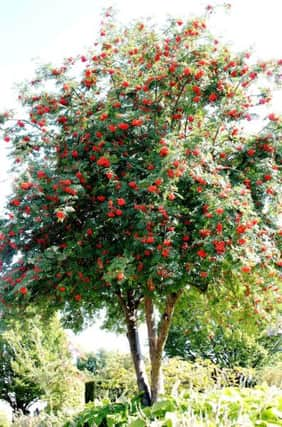An ill wind can'¨sometimes blow'¨good in gardens


The English climate can be a great leveller, uprooting trees and shrubs that no longer have the strength to withstand the stresses. Yes, a mighty oak can make a heck of a mess, but once the mess has been cleared, there’s the opportunity to simply replant with a replacement or get inventive.
For a small space, shrubs are probably more suitable than trees – and the choice is greater and more flexible. You could mix and match evergreens for their foliage with evergreens for their flowers, and deciduous, again for blooms and leaf-form.
Advertisement
Hide AdAdvertisement
Hide AdGround-cover ivies would help hold the soil in place, and who wouldn’t be tempted to plant a few clumps of spring-flowering bulbs like snowdrops, dwarf daffodils or multi-headed tulips?
For all-year-round foliage effect, Euonymus fortunei and E japonicus, perhaps surrounded by low-growing spurges (Euphorbia amygdaloides ‘Robbiae’) can transform a space. And taller varieties (E charcias ‘Wulfenii’, for example) can make a bold statement.
These, plus perhaps a hedgehog holly and a few perennials, will soon establish and should fill the space and provide far more year-round interest than a tree.